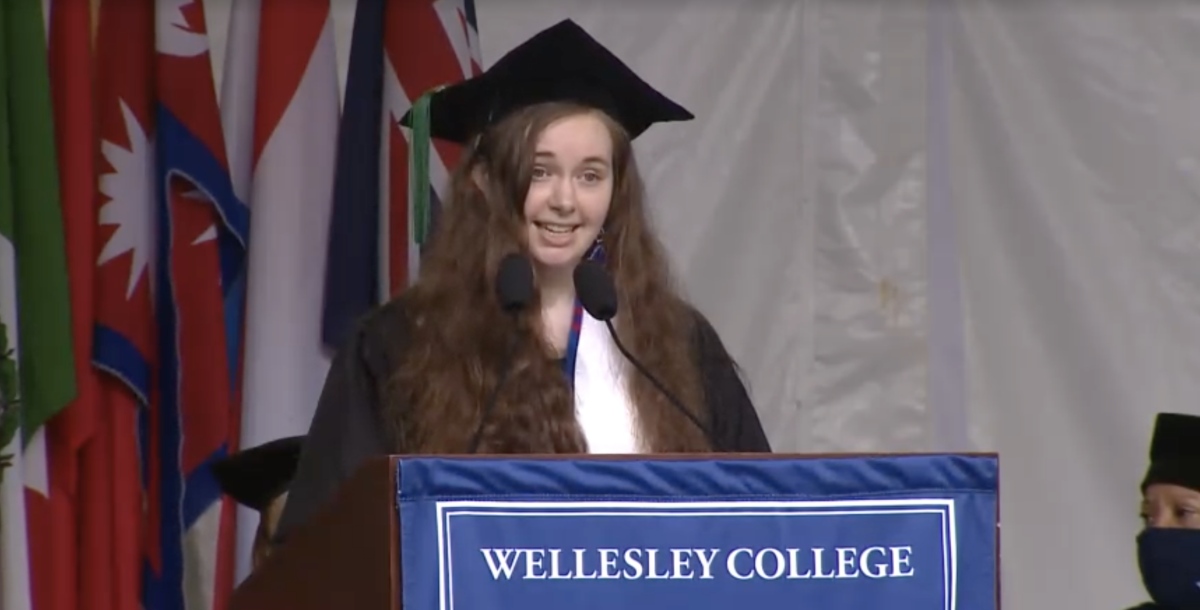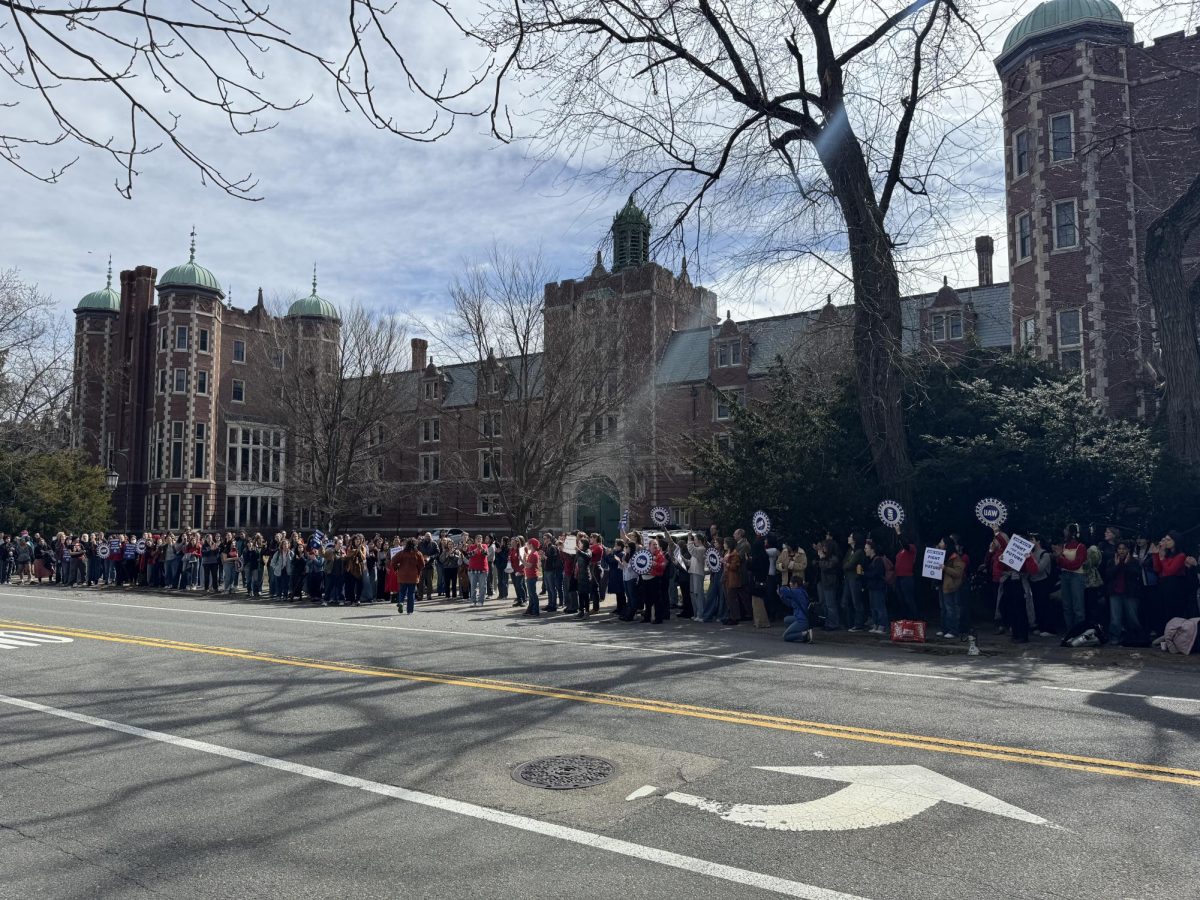On June 4, at the Class of 2021’s commencement ceremony, Kisha James ’21 gave the College’s first land acknowledgement. James was the second to speak at the commencement ceremony after Dean of Religious and Spiritual Life Jackie Marquez.
According to the Smithsonian’s National Museum of the American Indian, a land acknowledgement is a statement acknowledging that one is on territory originally inhabited by Indigenous peoples. It is a tradition in many Native communities and is usually given at the beginning of events.
James’ land acknowledgement was not a formal one issued by the College, but the acknowledgement marks a pivotal point in Wellesley College history; in its 143 years, the College has never formally acknowledged that it is built on the land of the Nipmuc and Massachusett tribes.
The Native American Student Association (NASA) has been working with administration to create a land acknowledgement — not specifically for commencement — as part of the organization’s list of demands that was released in the fall, though the acknowledgement has not been finalized or approved by the Board of Trustees yet.
James’ speech, however, was originally barred from taking place.
When Senior Class Presidents Shreya Parjan ’21 and Katie Christoph ’21 asked administration about a land acknowledgment for the ceremony, they were told the two could give a short recognition in their opening remarks. According to James, the two spoke with members of NASA to determine the most appropriate course of action.
“We determined it was best that a Native student give the land acknowledgement, and it was decided I would give it because I’m a local Native person,” James said.
James is from the Aquinnah Wampanoag tribe, whose homelands are in Martha’s Vineyard and Nantucket. Part of her speech was to be delivered in the Wampanoag language.
However, when Parjan and Christoph brought their idea to senior administration, they were told James could not give the acknowledgement.
“Essentially, they decided that I could not give the land acknowledgement because I am not a representative of the Class of 2021, and that’s sort of what started everything,” James said. “Katie and Shreya made a good point that it’s not really about me being a representative of the Class of 2021, it’s about me being a Native person giving the land acknowledgement.”
According to a Facebook post by Christoph, Parjan sent an email to the senior class urging students to email upper-level administrators to allow James to speak at commencement, rather than having Parjan and Christoph, two non-Native students, give the acknowledgement.
A petition soon began circulating through social media, explaining the situation and asking for support. It garnered over 1,300 signatures from students, faculty, alumnae and those unaffiliated with the school.
“The Wellesley student body has gotten really good [in] the last three years on Native issues and supporting Native sibs, so I expected some sort of response from the Wellesley student body,” James said. “I knew that some alums would be mad, but I didn’t know the extent to which alums would really champion our cause, and also the extent to which outside people and professors and other members of the community would champion us as well, so I really wasn’t expecting this level of response.”
On May 30, however, Wellesley College President Paula Johnson sent an email to the student body that was also published on the College’s blog.
“The misinformation that is being presented on this issue, suggesting that the identity of a speaker is the reason for our decision, is inaccurate and ignores the hard work that has been done on all sides regarding developing an official land acknowledgment,” President Johnson wrote.
Johnson did not specify in the email what this misinformation specifically was.
“I can tell you that all the information on the petition, in the email, on my social media was 100% correct, so I don’t know what misinformation we supposedly spread,” James said.
Replies and quote-tweets of the announcement contained many objections.
“I’ve seen a lot of questionable emails being sent out, but this was possibly the worst because it showed that senior administration had not been listening, had not read the petition, did not understand what we were trying to say,” James said.
The email also spurred further circulation of the petition and garnered significant attention from those unaffiliated with the school.
Two days later, James and Christoph met with Vice President and Dean of Students Sheilah Shaw Horton. Dean Horton explained to them that senior-level administration had decided to allow James to speak at commencement. President Johnson soon sent a short email announcing this to the public.
“The past four years have been me agitating for Native rights on campus, and the first two years I was almost completely ignored, so the fact that I’m leaving and this many people care about Native sibs really shows that my work has not been in vain,” James said.






